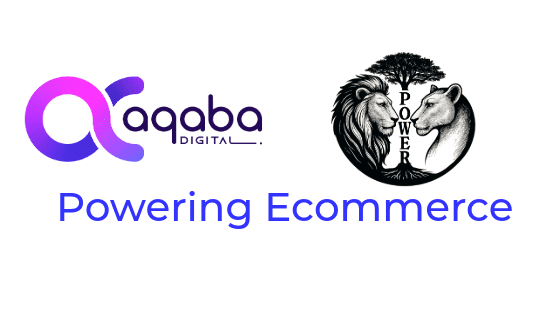In 2025, the widespread adoption of artificial intelligence (AI) has moved beyond large enterprises, and mid-market companies are increasingly embracing AI to enhance their competitive edge. Generative AI, a subset of AI focused on creating new data, is poised to become a critical tool in the toolkit of mid-market businesses. From automating content creation to generating innovative product designs, this technology is transforming business processes across industries.
As the technology matures, many mid-market companies are shifting their focus from experimentation to large-scale deployment. They are recognizing that integrating generative AI is no longer an option but a necessity for long-term growth and innovation. However, scaling generative AI is a complex process that requires businesses to rethink their operations, data strategies, and infrastructure. In this article, we will explore how mid-market companies are preparing for the adoption of generative AI in 2025 and the role this technology plays in driving their businesses forward.
The Growing Importance of AI in the Mid-Market
Historically, AI has been associated with large enterprises that have the resources and infrastructure to implement complex technologies. However, as AI solutions become more accessible and affordable, mid-market companies are increasingly adopting AI to improve operational efficiency, reduce costs, and create new value propositions. In 2025, generative AI is expected to be at the forefront of this transformation, offering mid-market businesses the ability to automate content creation, enhance customer experiences, and unlock new revenue streams.
According to a survey conducted by Gartner, by 2025, 70% of mid-market companies are expected to leverage AI in some form. A significant portion of this adoption is attributed to the increasing availability of AI-as-a-Service (AIaaS) platforms that provide pre-built AI models, making it easier for businesses without extensive technical expertise to integrate AI into their operations. Generative AI, in particular, is gaining traction because it can produce new content and data, enabling mid-market companies to scale their creative and analytical processes without requiring extensive manual input.
How Generative AI Is Being Applied
Generative AI has diverse applications across industries, and mid-market companies are exploring various ways to leverage this technology to create competitive advantages. Below are some of the primary ways that businesses are adopting generative AI:
Content Creation and Marketing Automation
One of the most prominent uses of generative AI is in the field of content creation. Companies are using AI to automate the production of written content, images, videos, and even music. AI-powered tools such as OpenAI’s GPT series have already demonstrated their ability to generate human-like text, making them valuable for creating marketing copy, blog posts, social media content, and email campaigns.
For mid-market companies that rely on content marketing to engage with customers, generative AI offers a way to scale their marketing efforts without increasing headcount. By automating repetitive tasks such as drafting product descriptions, creating personalized email responses, or designing ad banners, businesses can reduce the time and cost associated with content creation while maintaining consistency across multiple channels.
For instance, e-commerce companies can use generative AI to dynamically create personalized product recommendations, while media companies can automate the creation of news articles based on real-time data. This enables mid-market businesses to maintain a high volume of content production while reducing the workload for human creators.
Customer Support and Chatbots
AI-powered chatbots have become ubiquitous in customer support, but generative AI is taking these solutions to the next level. In 2025, businesses are leveraging AI not only to provide scripted responses but to generate personalized and contextually relevant conversations with customers. By analyzing user behavior, past interactions, and customer preferences, generative AI can create tailored responses that enhance customer satisfaction and retention.
For mid-market companies, implementing advanced AI chatbots enables them to offer 24/7 customer support without requiring a large customer service team. These AI-driven solutions are capable of handling complex queries, providing detailed answers, and even offering proactive suggestions based on customer needs. Furthermore, generative AI can help businesses better understand customer pain points by analyzing the vast amount of data collected from interactions.

Retailers, for example, can use AI chatbots to assist customers with product inquiries, make recommendations based on purchase history, and resolve issues such as returns and refunds, all in real-time. The scalability of AI-driven customer support makes it a valuable asset for mid-market businesses looking to compete with larger enterprises in delivering exceptional customer service.
Product Design and Innovation
Generative AI is not only transforming marketing and customer support but also playing a crucial role in product design and innovation. AI-driven tools can analyze vast amounts of data, identify patterns, and generate new product ideas or prototypes based on market trends and consumer preferences. This capability is particularly valuable for mid-market manufacturing and technology companies that need to innovate quickly to stay competitive.
By leveraging generative AI, companies can explore multiple design iterations and optimize products before going into production. This reduces the time and cost associated with product development and testing. For example, in the automotive and consumer electronics sectors, AI can generate new designs for car interiors or suggest modifications to improve the user experience.
Additionally, AI can help businesses in industries such as fashion or home decor generate creative designs based on past sales data, customer preferences, and emerging trends. Mid-market companies that adopt AI in their design processes will be better positioned to meet consumer demand and bring new products to market faster than their competitors.
Data-Driven Decision Making
As mid-market companies grow, the amount of data they generate becomes more complex. In 2025, generative AI is being used to process and analyze this data, offering insights that help businesses make more informed decisions. AI-powered data analysis tools can identify trends, forecast market movements, and optimize operations based on real-time information.
For instance, in the financial services sector, mid-market companies can use AI to generate predictive models that assess credit risk, identify potential fraud, and optimize investment strategies. Retailers can leverage AI to forecast demand, manage inventory, and tailor pricing strategies to maximize profitability.
Generative AI can also play a role in supply chain management by analyzing historical data and external factors (such as weather patterns or geopolitical events) to generate recommendations for optimizing supply chain operations. This enables mid-market companies to enhance efficiency, reduce costs, and mitigate risks.
Personalization and Customer Experience
Consumers in 2025 expect personalized experiences when interacting with brands, and generative AI enables mid-market companies to deliver on these expectations. By analyzing customer data and preferences, AI can generate personalized product recommendations, tailor marketing messages, and create customized shopping experiences.
For example, mid-market retailers can use AI to analyze customer browsing and purchase history to generate personalized product suggestions or create targeted marketing campaigns. Similarly, streaming platforms can use generative AI to recommend personalized content based on users’ viewing habits.
This level of personalization helps businesses build stronger relationships with their customers, leading to increased customer loyalty and higher conversion rates. The ability to offer tailored experiences is becoming a key differentiator for mid-market companies looking to stand out in competitive markets.
Challenges to Scaling Generative AI
While generative AI offers significant benefits to mid-market companies, scaling its adoption presents several challenges that businesses must address:
Data Availability and Quality
Generative AI relies heavily on large datasets to function effectively. Mid-market companies may struggle with the availability and quality of the data needed to train AI models. Poor-quality or incomplete data can lead to inaccurate predictions and suboptimal outcomes. Businesses must invest in data governance practices to ensure that their data is clean, relevant, and up to date.
Infrastructure and Technical Expertise
Implementing AI at scale requires robust infrastructure, including computing power, storage, and cloud services. Mid-market companies may face budgetary constraints when investing in the necessary infrastructure to support AI initiatives. Additionally, many mid-market companies lack in-house technical expertise in AI development and deployment, making it difficult to implement and maintain AI solutions.
To overcome these challenges, mid-market businesses are increasingly turning to AI-as-a-Service platforms, which provide pre-built AI models and infrastructure, allowing companies to integrate AI without the need for extensive internal resources. By leveraging these platforms, businesses can scale their AI initiatives more easily and cost-effectively.
Regulatory and Ethical Considerations
As AI becomes more prevalent, businesses must navigate complex regulatory and ethical considerations. Mid-market companies need to ensure that their AI systems comply with data privacy regulations (such as GDPR or CCPA) and that they use AI ethically and responsibly. This includes ensuring that AI-generated content is free from bias and that customer data is handled securely.
In 2025, regulatory bodies are expected to introduce stricter guidelines for AI adoption, and mid-market companies must be prepared to comply with these regulations while ensuring that their AI systems are transparent and accountable.
Change Management and Workforce Impact
The adoption of AI can significantly impact the workforce, as automation replaces certain tasks previously handled by human employees. Mid-market companies must carefully manage this transition to minimize disruption and ensure that employees are reskilled or redeployed to higher-value tasks. This requires a clear change management strategy that includes employee training and communication.
Preparing for AI Adoption: Key Considerations for Mid-Market Companies
To successfully scale generative AI in 2025, mid-market companies must take a strategic approach to adoption. Below are some key considerations for businesses preparing to implement AI:
Start Small, Scale Gradually
Rather than attempting to implement AI across all business processes at once, mid-market companies should start with small, focused AI projects that deliver tangible results. By gradually scaling AI adoption, businesses can build confidence in the technology and learn from initial implementations.
Invest in Data Governance
Data is the foundation of AI, and businesses must invest in data governance practices to ensure that their data is accurate, consistent, and relevant. This includes establishing data management.




